A history of tennis fashion and skirts: Why are they still such a must?

On the first night of the U.S. Open, Serena Williams took the high road and responded to her catsuit ban by wearing a fabulous black tutu.
The French Tennis Federation president, Bernard Giudicelli, recently said Williams’s Wakanda-inspired catsuit (her words) “will no longer be accepted,” during an interview with Tennis magazine. “One must respect the game and the place.”
Discussion soon erupted on what type of tennis attire is considered appropriate or not. Tennis legend Billie Jean King chimed in on the conversation, slamming French Open officials for the ban. “The policing of women’s bodies must end,” she wrote in a Twitter post. “The ‘respect’ that’s needed is for the exceptional talent ?@serenawilliams? brings to the game. Criticizing what she wears to work is where the true disrespect lies.”
Williams didn’t let the controversy deter her from winning her first U.S. Open match against Magda Linette on Monday. For the occasion, she paired her black tutu with an edgy leather moto jacket, asymmetrical leotard, and white sneakers. The look is part of the new “Queen” collection inspired by the tennis star and made in a collaboration between Virgil Abloh, the acclaimed Off-White designer, and Nike.
With this look, the 23-time Grand Slam winner continues her stride as a statement-making fashion star on the tennis court, and, as history shows — she’s not alone. Anne White was the first player to wear a catsuit on the court, which caused quite a stir at Wimbledon in 1985. Unconventional tennis fashions have been worn by male players too. A notable example is Andre Agassi, who wore denim shorts to the U.S. Open in 1988. Serena Williams longtime rival, Maria Sharapova, explored creative fashion as well, wearing a tuxedo-style blouse at Wimbledon in 2008.
Despite these fashion-making moments, the iconic tennis skirt continues to be the key sartorial piece in the game. Above, a look at how tennis fashion has changed over the years and why the skirt endures.
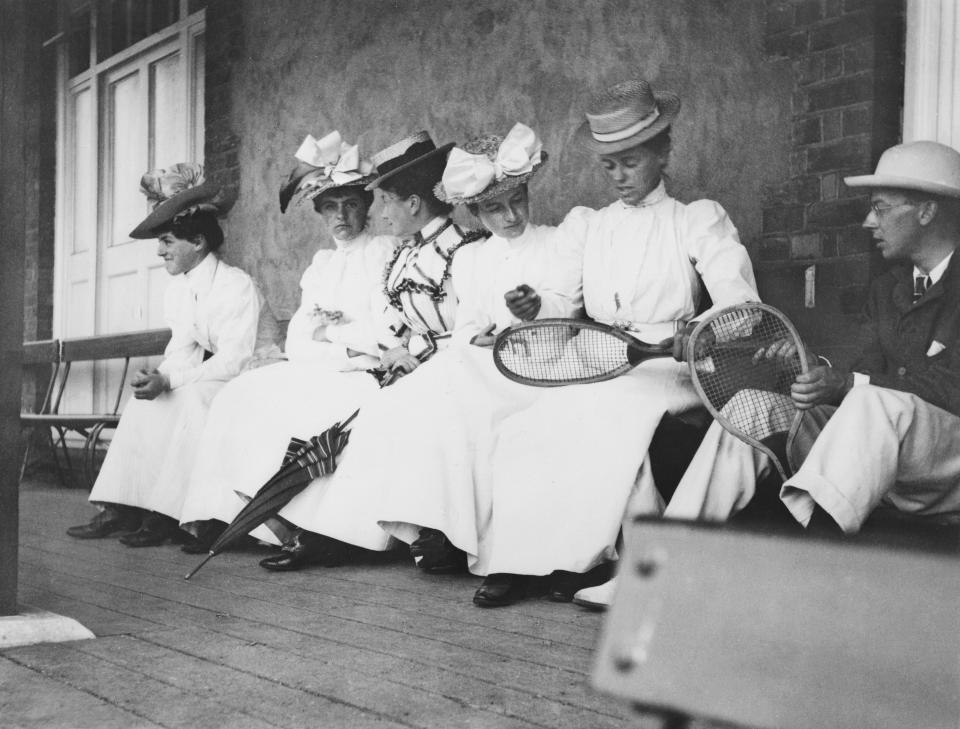
During the 1900s, long-sleeved blouses and long maxi skirts were the style of choice for tennis players. “Tennis started out in the Victorian era in England as a lawn sport for the aristocracy,” said Ben Rothenberg, author of The Stylish Life: Tennis, on CNN.
Modest tennis fashion dominated the era, as seen below on a tennis player who wears a pussy-bow blouse with ballooned sleeves, long white skirt, and white sneakers, all covering up nearly every inch of skin.
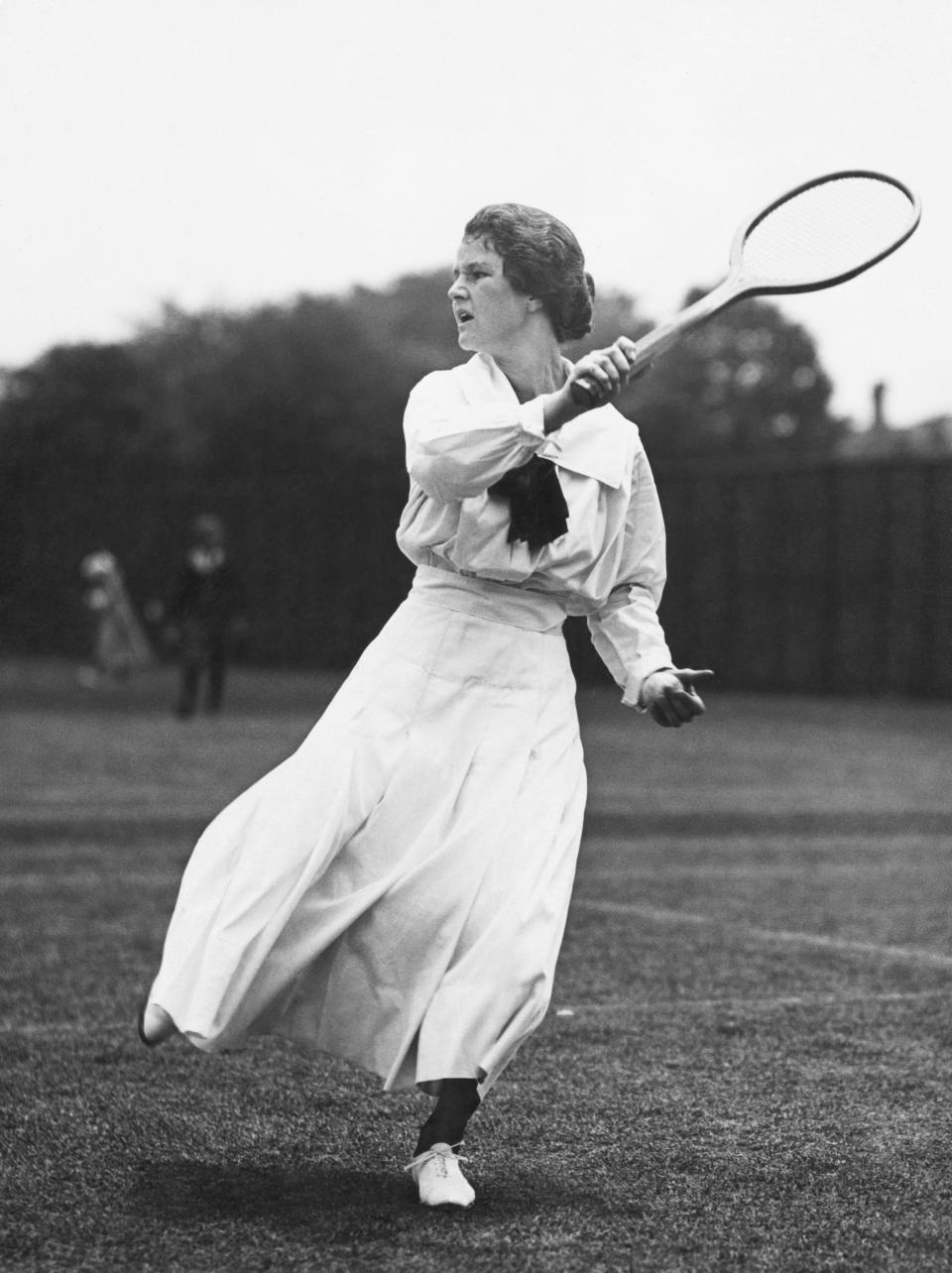
The 1920s saw a loosening of dress codes with the introduction of sleeveless blouses and higher hemlines. Pleats also became a popular stylistic choice.
Here, Olympic and Wimbledon champion Suzanne Lenglen wears a knee-length pleated skirt. She accessorizes the look with a soft head wrap.
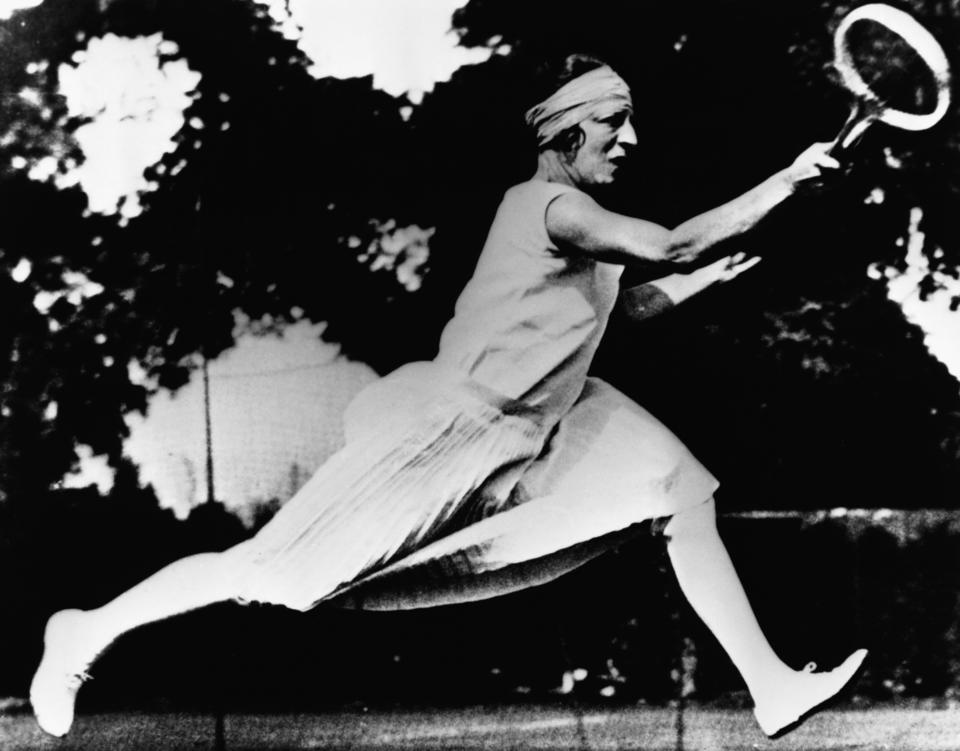
In the 1930s, skirts and hemlines continued to hit the knee, but pantyhose was no longer required in the dress code. Women began to wear polo shorts or another alternative: drop waist dresses or those cinched at the waist.

By the 1940s, women embraced shorts for greater mobility on the court, but they still kept them classy (of course). Here, American tennis player Pauline Betz wears a short-sleeve blouse tucked into her high-waisted, soft pleated shorts and a belt to tie it all together.
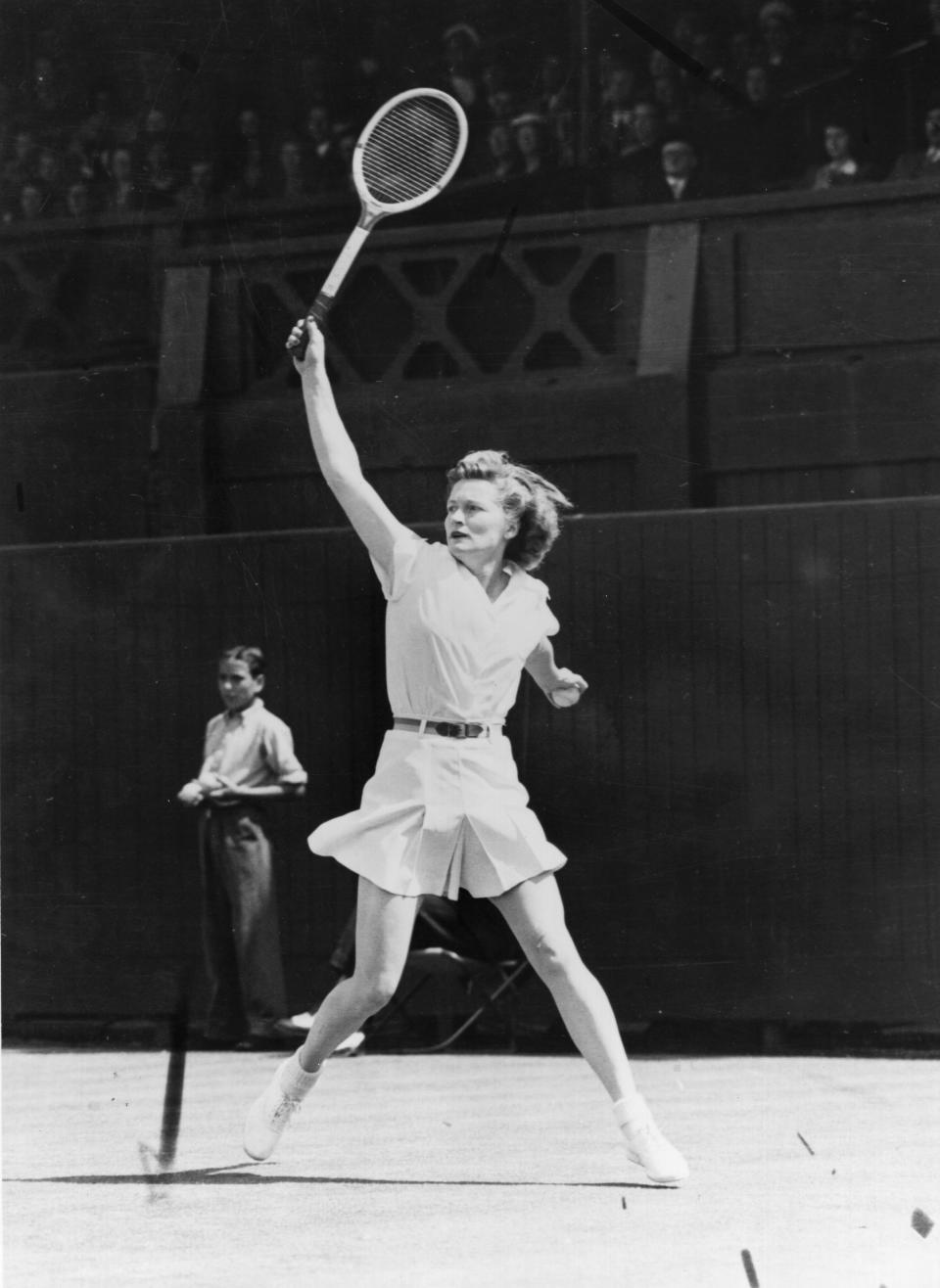
In the 1950s, when Marilyn Monroe’s famous windy skirt photograph became an iconic moment in film history, tennis players like Lea Percioli bent the rules of traditional tennis fashion.
Her style on the court was often featured in the press, where Percioli embraced short skirts and dresses, even if that meant showing more than she planned on.
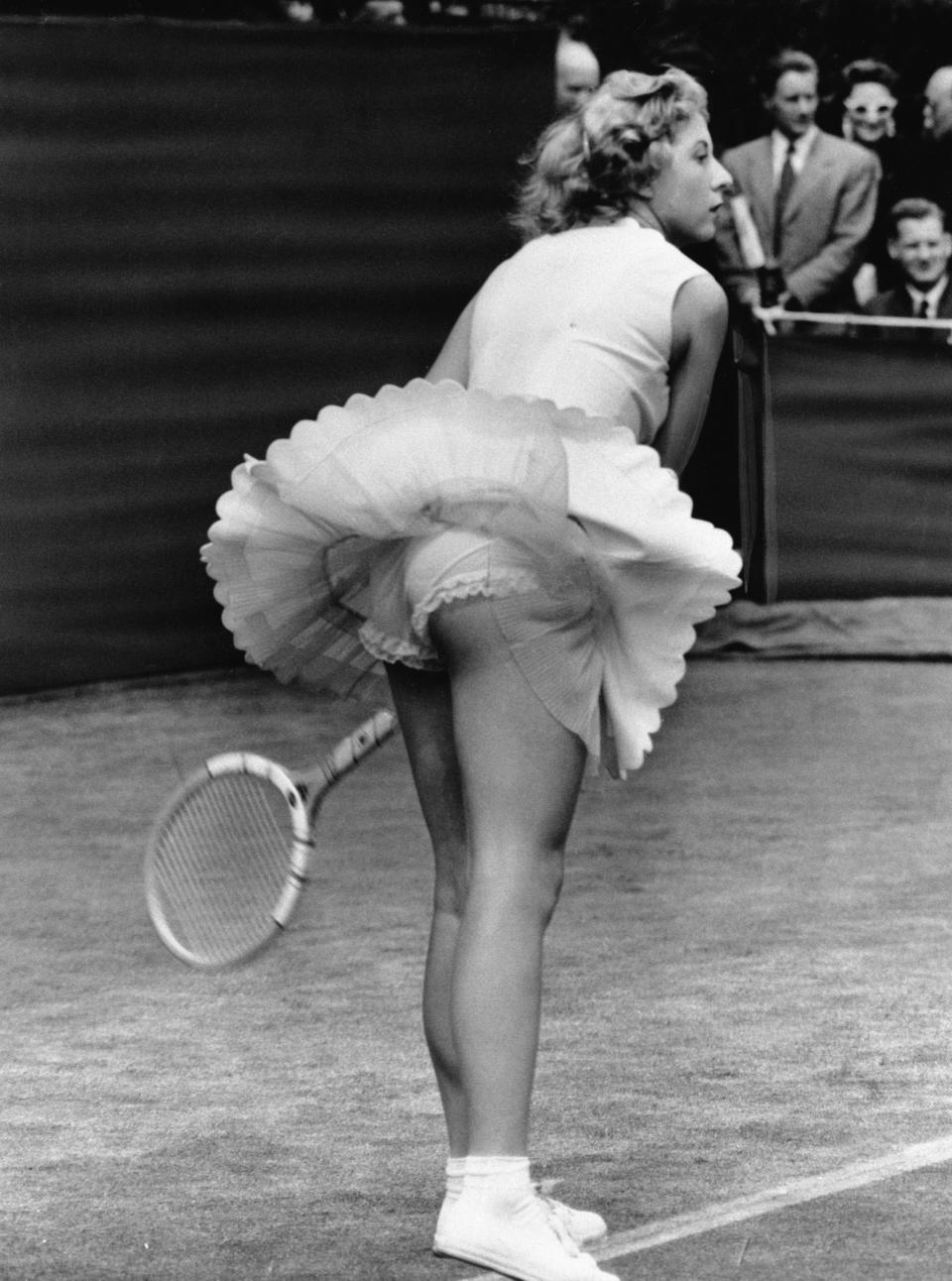
By the 1960s, mod fashion was front and center. Women took a more playful approach, embracing sleeveless tops and shirts with stripes, gingham, and other graphic prints like those seen here on Virginia Wade and Lorna Greveille-Collins of England and Marlys Burel of France.
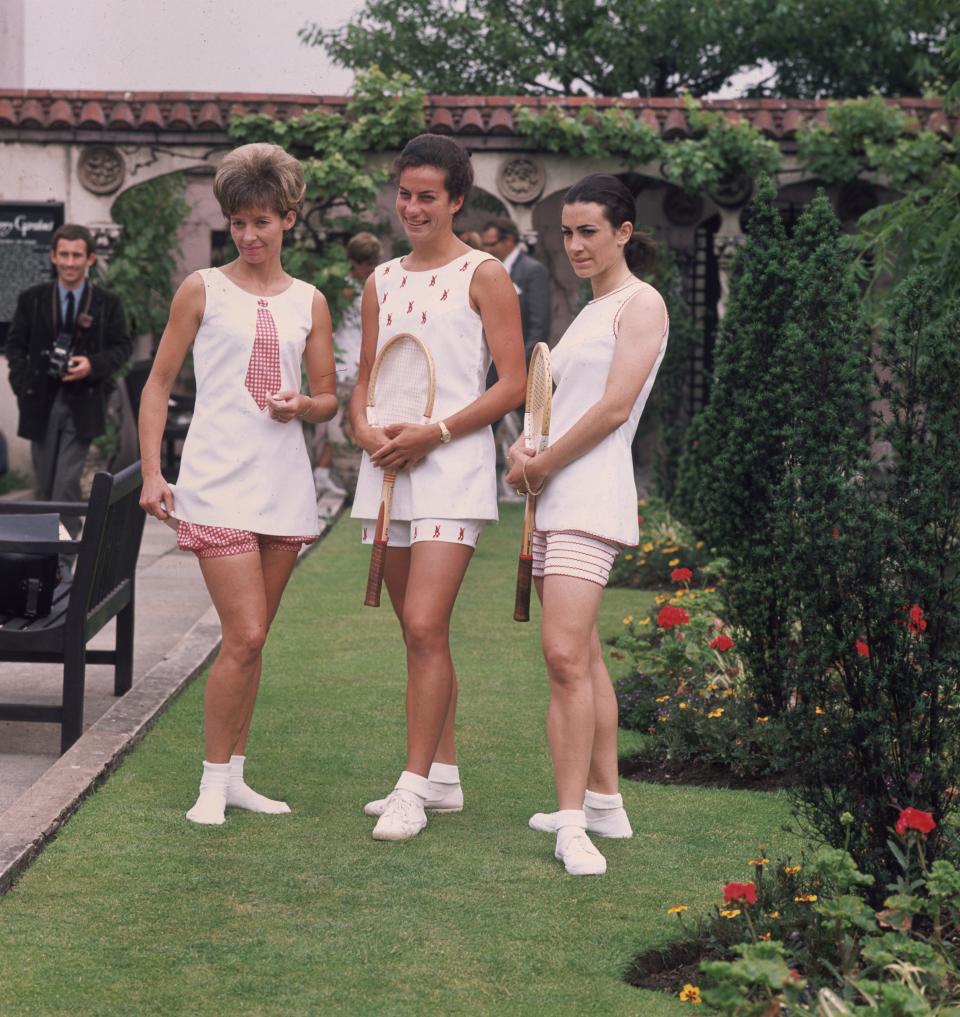
The 1970s was all about psychedelia. Colorful prints and patterns dominated the fashion scene, and this influenced tennis fashions, too, as exhibited here in a look worn by Martina Navratilova.
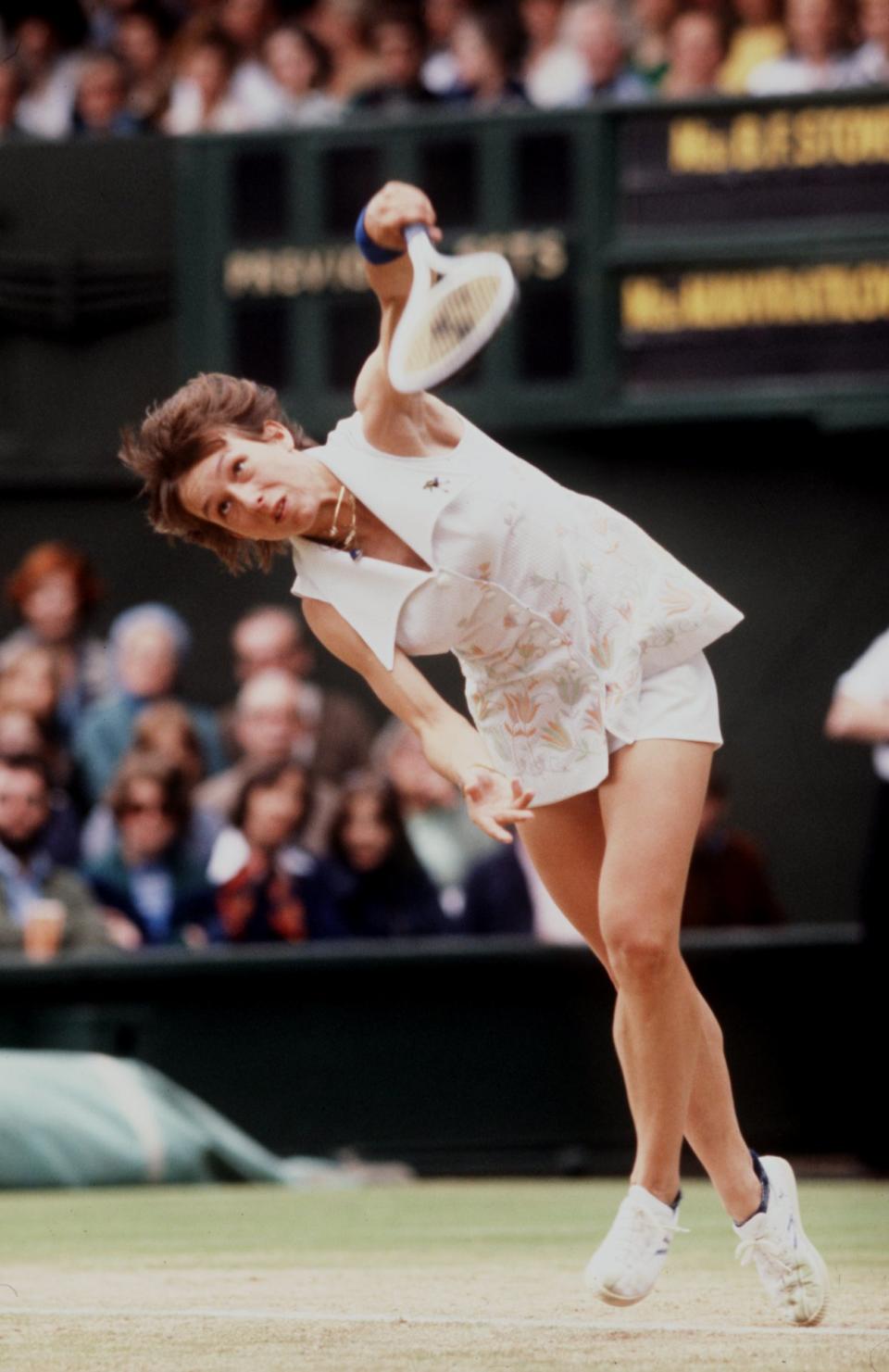
The 1980s witnessed a controversial look by American player Anne White, who wore a white spandex catsuit by designer Ted Tinling during her first match at Wimbledon. Little did she know that Serena Williams would sport a similar catsuit at the French Open more than 30 years later.
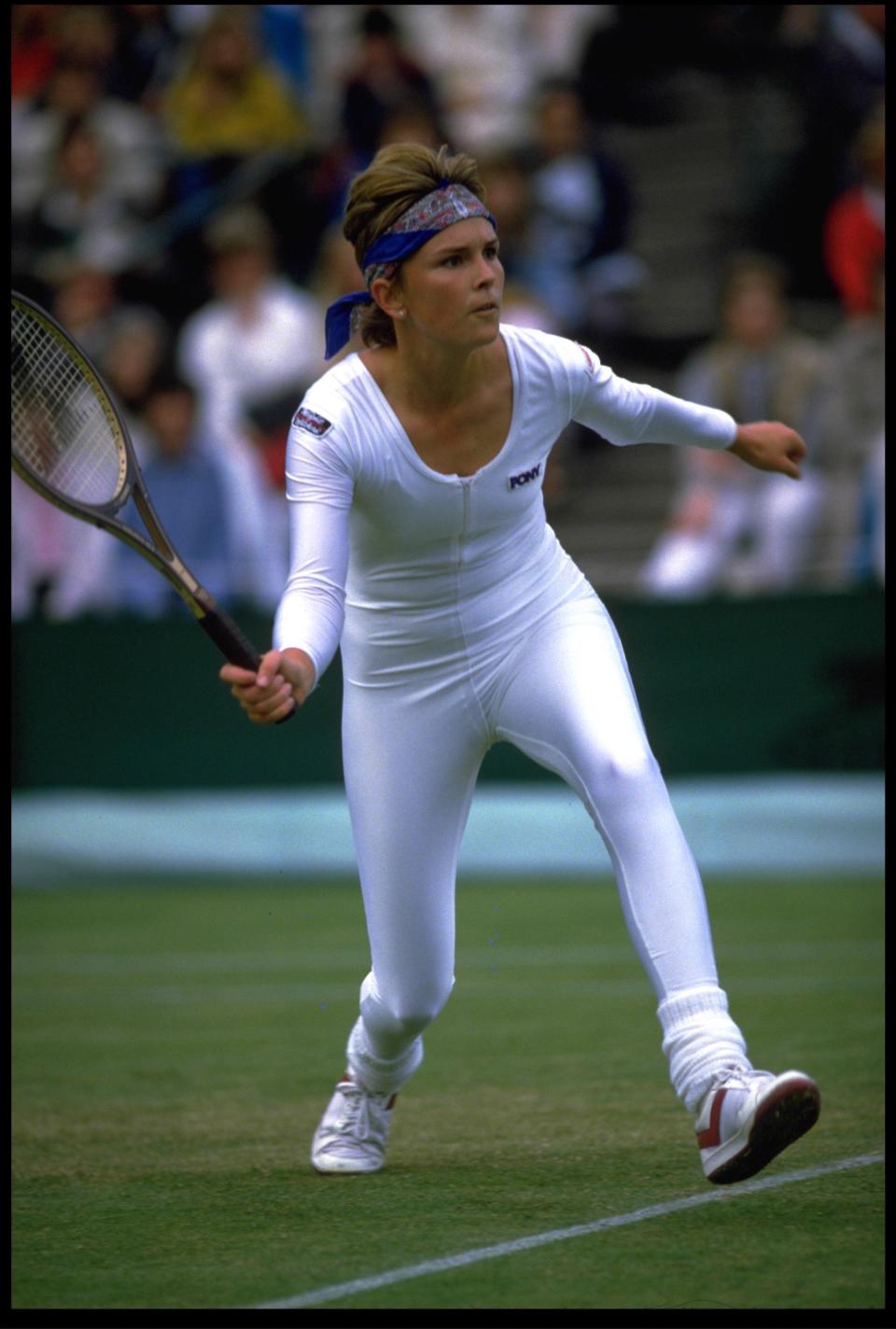
The 1990s were all about bright colors, loud prints, and plenty of scrunchies on the tennis court. German champ Steffi Graf wears a colorful floral skirt with a matching polo shirt and white scrunchie in her hair at the French Open in 1995.
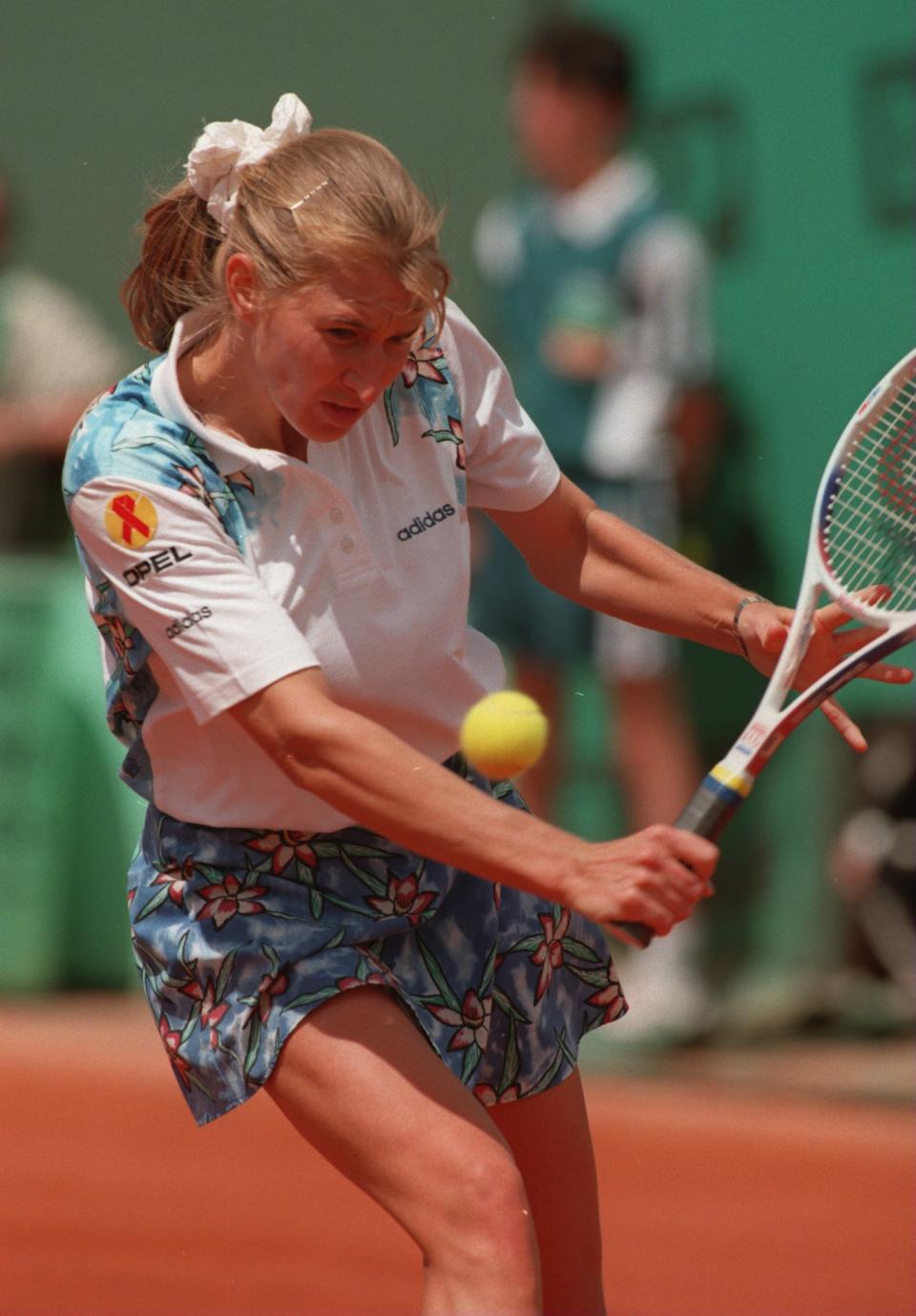
By the 2000s, brands like Adidas and Nike were emblazoned on tennis outfits of the top athletes. Here, Russian player Anna Kournikova wears head-to-toe Adidas.

In 2008, tennis champions Serena Williams and Maria Sharapova pushed the envelope of traditional tennis attire at Wimbledon, a bastion of traditionalism. Williams opted for a white trench coat, while Sharapova wore a tuxedo-style pleated blouse tucked into white shorts — and both looks were designed by Nike.
Unfortunately, Sharapova wasn’t able to wear her new look for too long, as she was eliminated in the second round. Her winning opponent, Alla Kudryavtseva, had this to say of Sharapova’s look, “I was pleased to beat her: I didn’t like her outfit.”


In 2010, tennis fashion took a more scandalous approach when Venus Williams wore a lingerie-like, sheer black-lace dress with red piping, designed by Williams for her fashion label, EleVen.
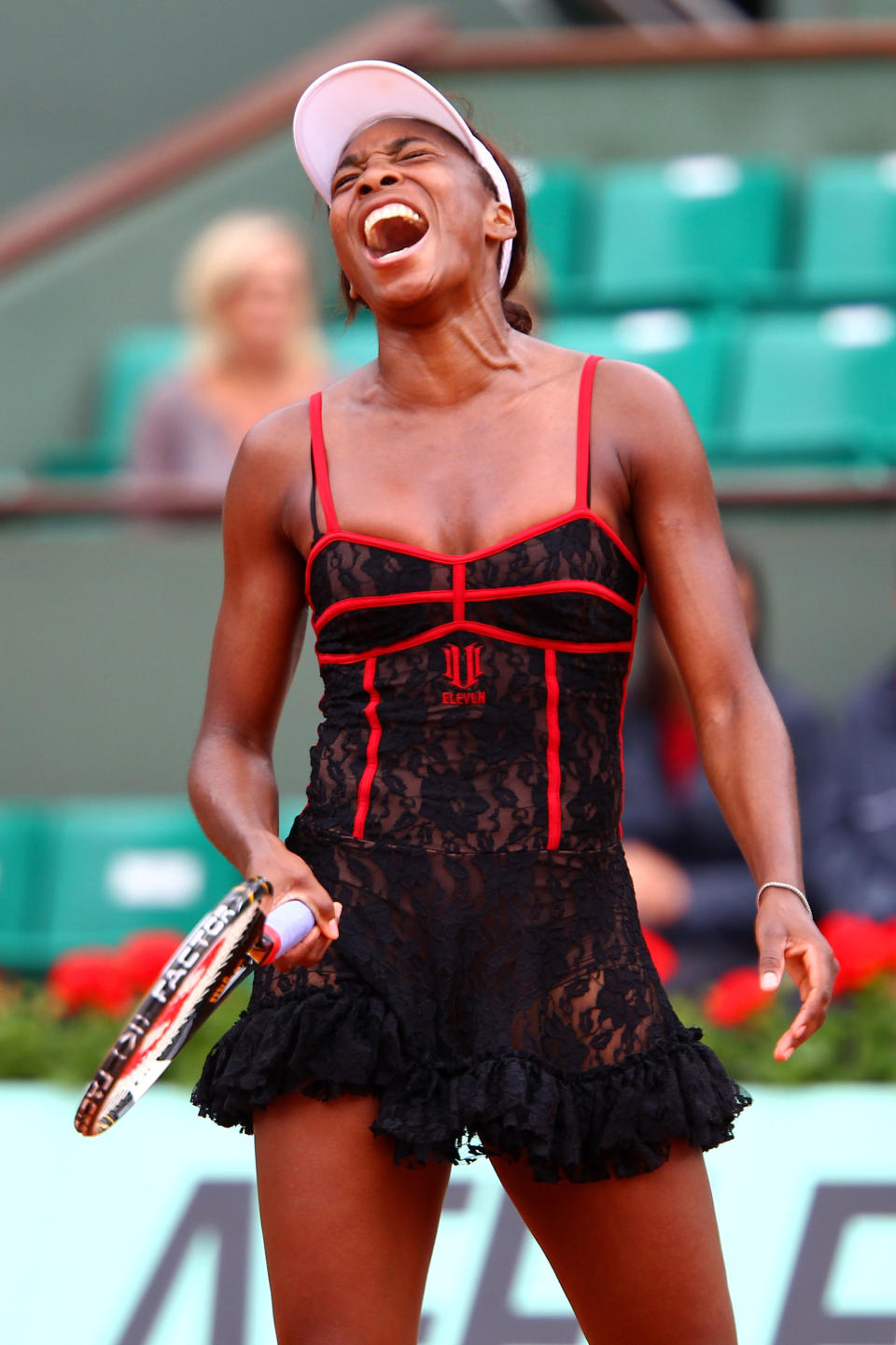
In 2011, Venus Williams continued her fashion stride, sporting atypical tennis attire.
At the Australian Open, Williams sported a yellow woven, cut-out tank with a splash of color.
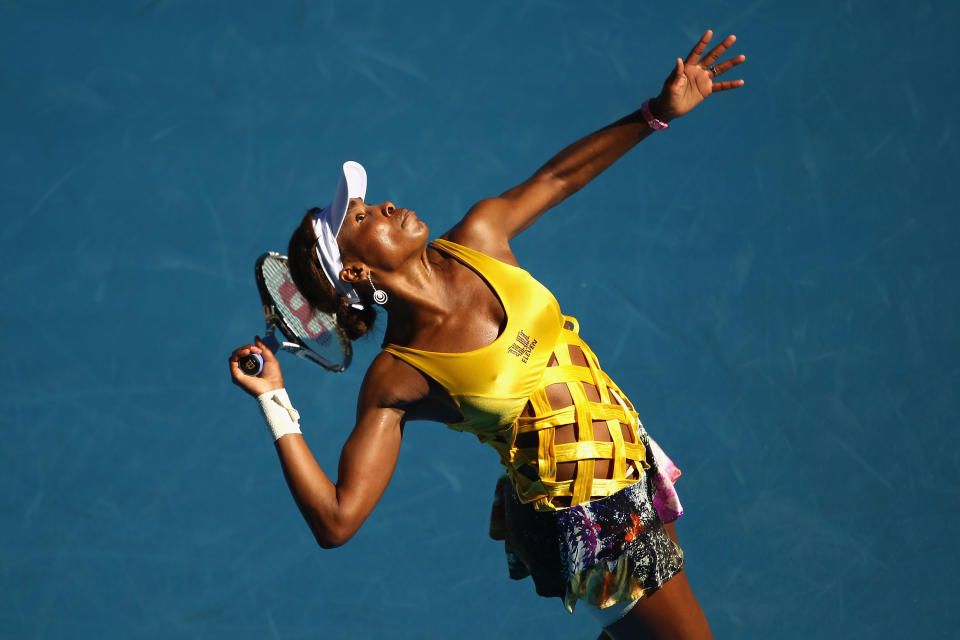
In 2015, Maria Sharapova traded in her 2008 tuxedo shirt for a classic stripe shirt over what would become known as the “Nike Maria Paris dress,” an adjoining white racerback tank top connected to a pleated navy mini.

In 2016, Serena Williams sported a classic all-white look in deference to Wimbledon’s all-white policy.

In 2017, 24-year-old Sloane Stephens won the U.S. Open women’s singles competition wearing a sherbet-orange tank dress and matching visor and shoes by Under Armour.

In 2018, Serena Williams debuts her Wakanda-inspired black catsuit at the French Open, which was designed to help prevent blood clots, a health issue she has been prone to.
The catsuit came under scrutiny by French Tennis Federation president Bernard Giudicelli, who recently said the style would “no longer be accepted.”

In the wake of this controversy, Williams debuted a brand-new look for the U.S. Open on August 27: a black tutu skirt, made by Off-White and Nike.

Read More from Yahoo Lifestyle:
? Did Meghan Markle inspire pal Serena Williams’s $90 ‘Royal Duchess’ hoodie?
? Serena Williams inspires mothers to share their parenting stories ahead of the U.S. Open
? Venus Williams expands fashion label into plus-size: ‘Representation matters’
Follow us on Instagram, Facebook, and Twitter for nonstop inspiration delivered fresh to your feed, every day.
